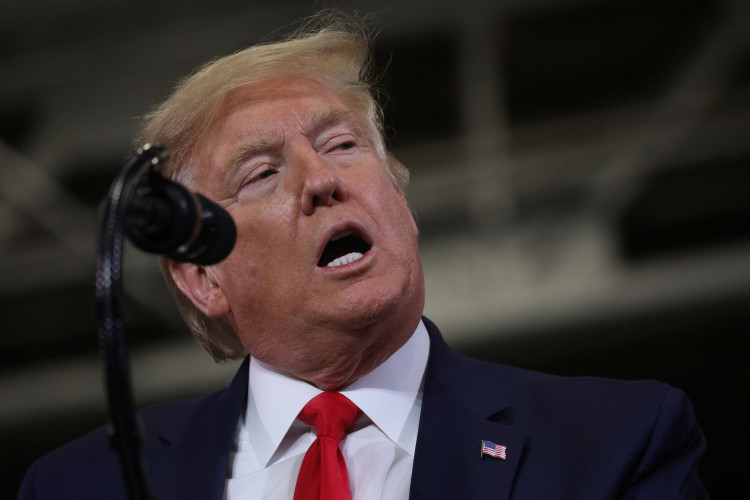President Donald Trump will again try to reduce the massive federal budget deficit set to exceed $1 trillion this year by initiating huge cuts to funding for federal social safety net programs such as Medicaid and food stamps. At the same time, Trump will increase the budget for the U.S. military while requesting $2 billion for building his border wall with Mexico.
Trump's new federal budget, which one expert described as "enormously cruel" includes deep cuts in spending on food stamps and federal disability benefits. It aims to slash $4.4 trillion in spending over a decade, mostly by gutting entitlement programs protecting poor Americans.
Congressmen of the Democratic Party that control the House of Representatives are expected to immediately reject those parts of Trump's new budget for the fiscal year 2020-2021 that will dismantle the country's vast social safety nets. The pro-poor Democrats have long fought to strengthen these safety nets to mitigate the vast income inequality created in the U.S. by Trump and his pro-rich Republican Party.
Trump's $4.8 trillion budget proposal for the fiscal year 2020-2021 essentially wants to eliminate the federal budget deficit by 2035 through a series of deep spending cuts in social programs for Americans and among federal government agencies. There is no attempt in the budget to raise taxes.
Rep. John Yarmuth (D-KY), chairman of the House Budget Committee, said: "this destructive and irrational president is giving us a destructive and irrational budget." He said that six short months ago, Trump signed a bipartisan two-year budget deal into law but now, Trump is apparently going back on his word. "Instead, he is proposing deep cuts to critical programs that help American families and protect our economic and national security," said Yarmuth.
"Furthermore, the budget reportedly includes destructive changes to Medicaid, SNAP, Social Security, and other assistance programs that help Americans make ends meet -- all while extending his tax cuts for millionaires and wealthy corporations."
The federal budget deficit will exceed $1 trillion this year due to the enormous tax cuts given to businesses and wealthy Americans by the Republican Party's Tax Cuts and Jobs Act passed in December 2017. The huge revenue losses triggered by these tax cuts to the rich were worsened by declining federal tax revenues. Corporations, which massively benefited from the tax cuts, haven't reinvested their profits in business or hired new employees, but instead went on stock buybacks that enriched their shareholders.
The federal debt has increased by $2.8 trillion since Trump took office in 2017 and is projected to soar by $4.7 trillion through the end of the decade because of spending increases and tax cuts.
Trump wants deep and unrealistic cuts to a number of federal agency budgets. Among the hardest hit federal agencies will be the Environmental Protection Agency (26 percent budget cut), the Department of Housing and Urban Development (15 percent cut) and the U.S. Centers for Disease Control and Prevention (nine percent cut). Political pundits said both chambers of Congress are unlikely to support these cuts.
To be rejected outright by House Democrats will be the extra $2 billion Trump wants for the Mexico border wall construction, and billions in funding hikes for immigration enforcement. Total cuts to "non-defense discretionary programs," which don't include Medicare or Social Security, amount to $2 trillion under the proposed budget. Foreign aid will be reduced by 21 percent to support Trump's "America First" foreign policy.
Money spent on security will grow. The budget for the Department of Homeland Security, which enforces Trump's anti-immigrant policies, will increase three percent. The Department of Defense will see a 0.3 percent increase in military spending to $740.5 billion. The budget for the National Nuclear Security Administration (NNSA) will get a 19 percent boost. NNSA maintains and enhances the safety, security, and effectiveness of the U.S. nuclear weapons stockpile.






